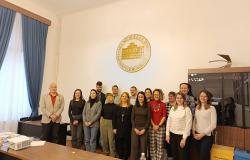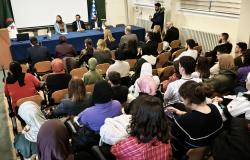Successfully implemented “Protection and rescue - field exercises” summer school
The Faculty of Criminalistics, Criminology and Security Studies, University of Sarajevo has successfully implemented the summer school “Protection and Rescue - Field Exercises.” The program was implemented in partnership with the Novi Grad Sarajevo Mountain Rescue Service, which operates within the Civil Protection Service of the Novi Grad Municipality. On that behalf, Faculty of Criminology, Criminology and Security Studies, University of Sarajevo Dean, Prof. Dr. Nedžad Korajlić, and the Association of the Mountain Civil Rescue Service of the Novi Grad Municipality, Sarajevo president, Mr. Fahrudin Dobrača, signed an Agreement on Cooperation on 21 September 2020, thus formalizing the cooperation between the Faculty and this respectable rescue service.
In accordance with all the extraordinary circumstances due to the new coronavirus pandemic (Covid-19), the Summer School’s theoretical part was held online in order to improve the existing knowledge of students and professionals in this field, and gain new knowledge in the field of protection and rescue, as we all need additional knowledge in this area more than ever, given the world we live in.
The “Protection and Rescue” summer school was conducted in two stages. The first - theoretical part took place via an online platform, from 22 to 26 June 2020, where all participants were able to attend lectures, both of Faculty professors and practitioners. The second part, exclusively field and practical exercises, were realized from 21 to 25 September 2020 in full capacity, in the “Safet Zajko” Center in Sarajevo, with the wholehearted support of members of the Mountain Rescue Service Novi Grad Sarajevo.
The certificate awarding for successfully completed program was organized at the Faculty of Criminalistics, Criminology and Security Studies, University of Sarajevo, with the satisfaction for the summer school realization, both of students and organizers. The Faculty in cooperation with partner organizations will continue to implement academic non-cyclical training programs in the future, in order to promote lifelong learning and strengthen the capacity of students and professions to adequately respond to numerous security challenges.
Source: FUniversity of Sarajevo Faculty of Criminalistics, Criminology and Security Studies








